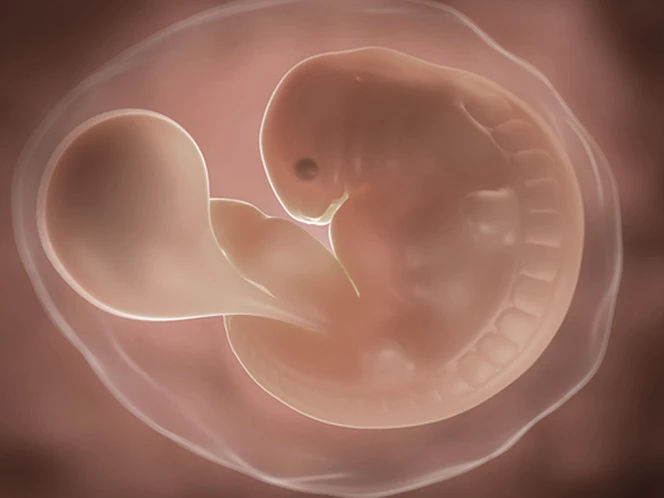In week 5 of pregnancy, your baby, technically called an embryo, measures a little over 1mm long1 – that’s roughly the size of a sesame seed. But already their brain, spinal cord and blood vessels are beginning to develop, albeit on a microscopic scale2. Their circulatory system is also developing and it’s at around the end of week 5 that your baby’s heart starts to beat1.
Meanwhile, the umbilical cord, which will deliver nutrients to your baby, is beginning to form2. The amniotic sac, soon to be filled with a clear, pale fluid to cushion your baby, starts to take shape too3.








